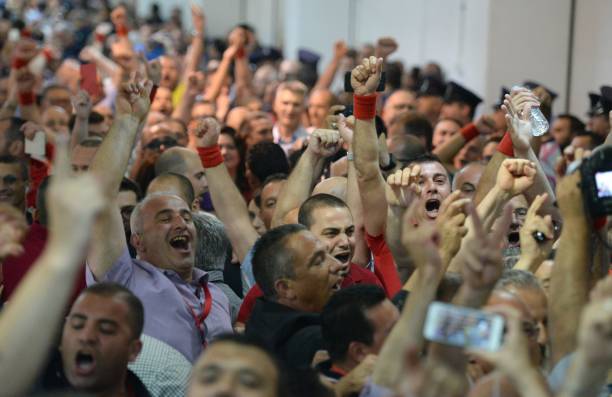
The Sunday Times of Malta recently reported that the government is proposing to have all SIM cards registered under their owners’ names in an effort to combat serious crime. Though welcome by some, this also raised concerns over privacy and on technical loopholes that can be worked out to avoid registering.
Indeed, some compared this to an Orwellian scenario where the government has increased control over people’s privacy. CCTV, face profiling and various forms of digital surveillance can lead to a context where big brother is not only watching you but also attempting to influence your behaviour through analytics and various forms of direct and indirect advertising and propaganda.
In the process we may end up watching ourselves both consciously and unconsciously. We may be careful of our digital footprint but we may also not notice how we are being nudged towards certain behaviour.
Joseph Muscat’s government happens to be very media savvy and it was recently announced that almost 20 per cent of media expenditure by the Office of the Prime Minister is directed towards social media such as Facebook. No wonder we see Muscat’s face all over the place.
Which takes us to a global scandal on online political campaigning that was reported by The New York Times and The Observer. Voter-profiling company Cambridge Analytica harvested massive amounts of data from Facebook for the usage of political campaigners to target voters.
Basically, this method enables campaigners to get voters’ profiles and thus send them political messages which are targeted towards their preferences, even incorporating fake news and ‘alternative’ truths. This method was used by Donald Trump’s team in the run-up to the last US presidential election and also by the pro-Brexit campaign some years ago. A number of populist parties also tend to favour such methods.
This leads us to the inevitable question. Could this method have been used by Muscat’s Labour Party in recent electoral campaigns? We all know that Labour has an efficient propaganda machine. And many of us would agree that Muscat is the type of politician who is very elastic with principles so long as he gets votes. Some also denounce his government as being soulless, as being ready to sell everything, and as ultimately interested in strengthening and enriching the inner clique.
On September 7, 2017, a few weeks before her brutal murder, Daphne Caruana Galizia alleged that Muscat and Keith Schembri were after consultancy advice from Cambridge Analytica.
More recently, on February 28, Manuel Delia wrote that Cambridge Analytica advised Muscat’s Labour Party, which was capable of exploiting individuals’ proclivities, fears and village paranoia in order to push people to switch parties not out of reasons of politics and aspiration but reasons of fear and perceived imaginary needs.
On March 19, Delia added that such “psychological warfare” has been used in Malta “at least since March 2015”. He referred to a mobile phone application that was “disguised as an encouragement-to-vote campaign” but which enabled the app to access the users’ Facebook data.
Delia adds that although this was a government application and though Maltese legislation prohibits the collection of data not needed for the purpose of the service provided, “a further breach of the same law to share the data with the Labour Party is far from unlikely”.
On the same day, the government publicly declared that it “never had any contact with Cambridge Analytica or any company offering similar data analytics services”. Who are we to believe? Well, I have my opinion and no prizes for who guesses it. But surely, Maltese voters have the right to know what is happening through proper investigation and not just through press statements and allegations.
Parliament should discuss whether such methods are acceptable and whether new legislation is to be established to respect voters’ privacy, rights and responsibilities. Parties should be scrutinised and transparent in their online campaigns. The public should be educated and equipped to understand what analytics are all about, and auditing should be publicly available.
Otherwise, the next time we see Muscat’s face popping up on our smartphones, we can’t be blamed for suspecting that he is really watching us.




